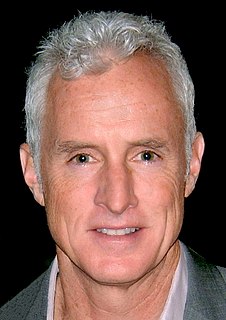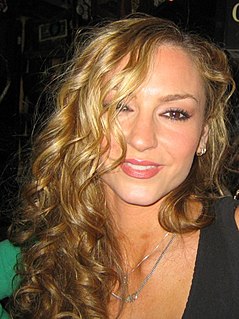A Quote by Dee Rees
I started out at Procter & Gamble marketing panty liners, so basically selling women insecurity. I thought there must be more to life than this. Then I was on set for a Dr. Scholl's commercial, and I asked one of the execs, 'How do you get a job behind the camera?' and he said, 'Film school.' So I quit and applied to NYU.
Related Quotes
I was making commercials. That's how I learned the craft. That was the marketing part of it: directing commercial for TV. It wasn't the most common thing to become a filmmaker in Greece. I started by saying I was interested in marketing and have a proper job in advertising and commercials. Basically, I studied film to learn how to do marketing, and commercials. As I studied film I learned I'd be interested in making films instead of commercials.
That's one of those questions where somebody says "would you like to see more women behind the camera?" And then it becomes I must have interrupted the interview to make a platform stance. But, no, I do believe it. In Australia, per capita, we've got a slightly more balanced and healthier statistic than here. I've only just started working more regularly with female ADs and its just a beautiful, different energy on set.
We have African-Americans and black people getting behind the scenes more and more, we get true black images in television and film...because we have black people behind them. They can tell stories from those points of view and bring to life those characters who have yet to be shown. As long as we have people behind the camera just as much as in front of the camera doing the work, then we'll always be good.
I wanted to get out of Ashland, and I thought it would be pretty cool to go to school in the East. So I asked my guidance counselor what Ivy League schools were. And I applied to Harvard, Yale and Dartmouth - that was it. My guidance counselor told me I wouldn't get into an Ivy League school. So as my act of resistance, that's all I applied to.
I do voiceovers, but being on-camera and selling something? I wasn't really interested. And then I thought, well, wait a minute. Everybody's selling something. When you turn on the tube... And then if you go to Europe or Asia, everyone is selling something. All the guys that don't want to be seen selling something here are selling something there. So I thought what the hell?
I went to NYU for acting, for six years. I thought acting was the easy way out or in because I didn't put in enough effort in school, being a crazy kid in college. But, I was good at it, so that was the other side of it. I would love to direct. What I've learned from being on set is more how to deal with actors than even the visual part of it all.
When I was younger, I definitely thought musical theater was sort of more pure than film. I used to say I'd never go to film because we had to get it right the first time in musical theater. But then, of course, I started doing film and realized I loved it. Keep in mind that I was 8 years old when I said that.
Here’s how to know if you have the makeup to be an investor. How would you handle the following situation? Let’s say you own a Procter & Gamble in your portfolio and the stock price goes down by half. Do you like it better? If it falls in half, do you reinvest dividends? Do you take cash out of savings to buy more? If you have the confidence to do that, then you’re an investor. If you don’t, you’re not an investor, you’re a speculator, and you shouldn’t be in the stock market in the first place.
Zooming in, zooming out. I was shocked. I said, "Let's erase this right now, put the camera behind the stage and I'll do the performance just for the camera." He set up everything and I told him to go outside and smoke a cigarette. Come back when I finish. Don't touch the camera. This was the way how I've done most everything after that.
I went to graduate film school at NYU, and at first I didn't get a degree, because I took a scholarship that was supposed to pay my tuition, and I used it to make a film. For the longest time, I never actually graduated. And about 70 percent of the things I learned there I had to unlearn, but 30 percent was really valuable. It's like Mark Twain said, "Don't let school get in the way of your education."






































